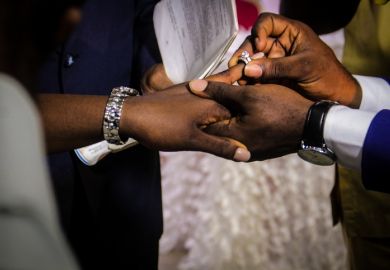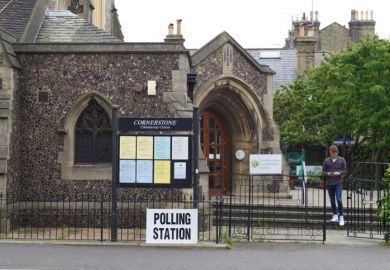Australian universities are to pilot online training in “respectful relationships”, in a response to growing concerns about sexual abuse on campuses.
Universities Australia said that it would work with violence prevention organisation Our Watch and the Victorian government’s Office for Women on the project, which is likely to be trialled next year with undergraduates at four institutions – Western Sydney and Southern Cross universities in New South Wales and Melbourne’s La Trobe and Monash universities – before being rolled out nationwide.
Universities will have discretion over whether the course is mandatory, which students should have access to it and whether staff should also take it.
Universities Australia said that research suggested that training that emphasised equality and respect was the best antidote to gendered violence, because sexual assault was incompatible with respectful attitudes. It said that students should leave university holding such attitudes, irrespective of their views when they arrived.
Chief executive Catriona Jackson said that the programme was part of a long-term commitment by the country’s universities to address sexual assault and harassment in society. She said that sexual violence affected every country, preventing it was a “global challenge” and “our universities have stepped up to play their part”.
“Working in partnership with prevention experts, we can tackle the society-wide drivers of violence against women and highlight a shared resolve on safety and respect for all students,” she said.
There is little data to support claims of a so-called rape culture on Australian campuses, with no convincing evidence that they suffer more sexual assault incidence than any other community facilities – apart from some on-campus residential colleges which, while accommodating a relatively small proportion of Australia’s students, have become notorious for attacks, harassment and ritualised abuse.
Vice-chancellors have taken the view that merely being no worse than anywhere else is not enough, and does not meet their duty of care to their largely young clientele or their responsibility to be community exemplars. Critics say that they are appeasing campus activists by cramming university curricula with indoctrination programmes.
Ms Jackson said that the new module would be part of a whole-institution approach to prevent violence, also developed with Our Watch. She said that the initiative would include workplace standards, training packages, resources and toolkits for senior leaders, staff and students.
“No single programme on its own can bring about change. This training will work in concert with a comprehensive sector-led programme to enhance counselling services, reporting policies, training for staff and wider violence prevention efforts,” she said.
Universities Australia chair Margaret Gardner, Monash University’s vice-chancellor, said that students needed to “look out for each other and look after each other” during university orientation weeks, which are getting under way around the country.
“O Week is meant to be a time for new friendships and fun experiences before getting into study for the year,” she said. “But we also want all students to be safe. To any student who thinks it’s okay to have sex without the other person’s consent, think again – it’s not.”
Last month, Australia’s higher education regulator released its report into universities’ activities to address sexual assault and harassment. It found that reports over the past two years had triggered “widespread reform” in the sector.
Register to continue
Why register?
- Registration is free and only takes a moment
- Once registered, you can read 3 articles a month
- Sign up for our newsletter
Subscribe
Or subscribe for unlimited access to:
- Unlimited access to news, views, insights & reviews
- Digital editions
- Digital access to THE’s university and college rankings analysis
Already registered or a current subscriber? Login









